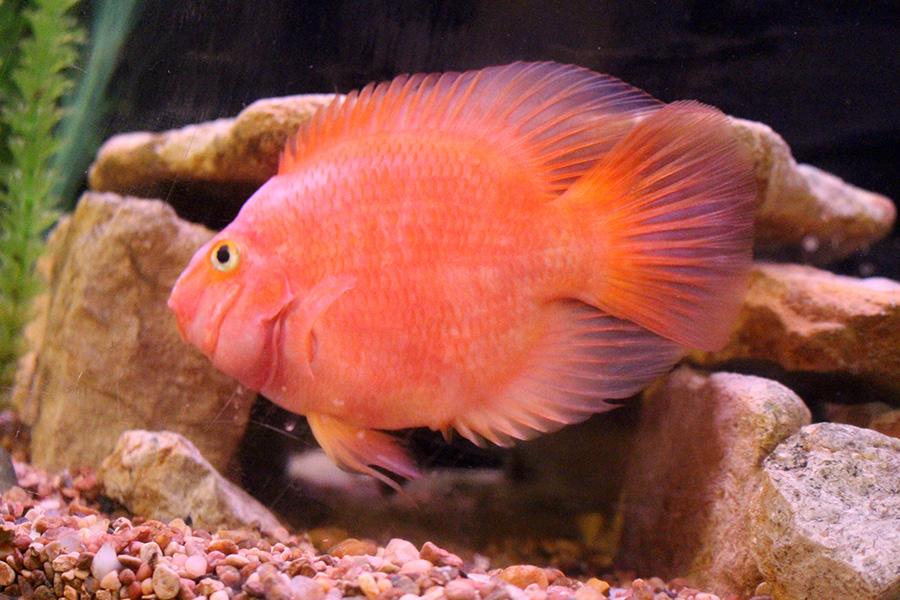Fish are friends, not food
A BVNW freshman houses a collection of rare tropical fish in his basement.
February 3, 2014
Inside a large basement, four massive tanks of aquatic life cover the edges. A diversity of fish swim inside each tank, each with varying degrees of rarity. These collections belong to freshman Dominic Moorman, who has been collecting exotic fish since he was four years old.
“My dad gave me and my sister a fish bowl when we were younger,” Moorman said. “My sister didn’t really like [the fish], but I thought it was fascinating, and I took an interest in it.”
Moorman took such an intense interest in fish that he started to collect more and more of them, until he finally got a 10-gallon tank to store them. He has since expanded on that, and has collected tanks measuring 200 gallons, 55 gallons, 20 gallons and an 80-gallon tank which he does not use.
“The tanks are big, so we keep them in the basement,” Moorman said. “The 200-gallon tank is seven feet long, two feet tall and two feet wide.”
The types of fish Moorman collects are rather unknown to most of the world. He gets his supply from Olathe Pet Shop, he prefers not to go to places such as PetSmart because they do not carry fish as rare as he collects.
“The rarest fish I have is called an Ornate Bichir,” Moorman said. “It’s about a foot long, and takes about $50 to care for every week. It can be worth up to $200, but I don’t plan on selling it, since it’s my favorite.”
Aside from the Bichir, Moorman said the species he has the most of is Cichlids. They come from mostly South America, but some can come from Africa. Altogether, the collection takes a serious time commitment in order to keep the fish healthy.
“I feed [the fish] in the morning and at night,” Moorman said. “I clean the tanks once a month, which takes 30 minutes for the smaller tanks, but up to an hour and a half for the 200-gallon tank.”
Moorman said that though keeping a wide variety of fish in his house is fun, the task comes with many difficulties and hardships. The hardest part of keeping his fish is the cleaning, especially the filters, he said.
“[The filters] are expensive and hard to replace and clean,” Moorman said. “Once you remove them from the tank, it’s so hard to start back up.”
According to Moorman, another difficult part about keeping the fish healthy and happy is the expenses that come with each one.
“The equipment alone can cost up to $50 a month,” Moorman said. “There’s also food costs, chemicals for cleaning the water and carbon for the filters.”
Moorman added that he does not take care of the fish alone. He has spread his interest to many of his family and friends, and each of them has helped him create a successful collection.
“[My friends and family] all support me,” Moorman said. “One of my friends comes over occasionally to help me clean the tanks.”
Moorman’s father David Moorman said the fish have taught Moorman multiple life skills, and were a great investment.
“The constant maintenance teaches him responsibility,” David said. “I’ll ask him to problem solve instead of asking me, and he’s developed that over the years.”
In the future, Moorman hopes to become an ichthyologist (one who studies fish), and plans to continue collecting different types of fish.
“I’ve always had an interest in biology and science, so fish have expanded my passion,” Moorman said. “I’m planning on taking lots of science classes before I graduate, and then I want to just continue learning and collecting.”









